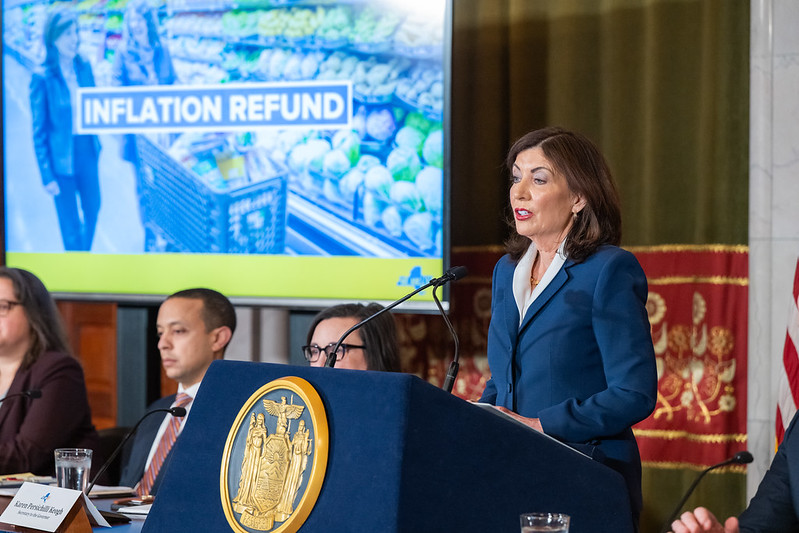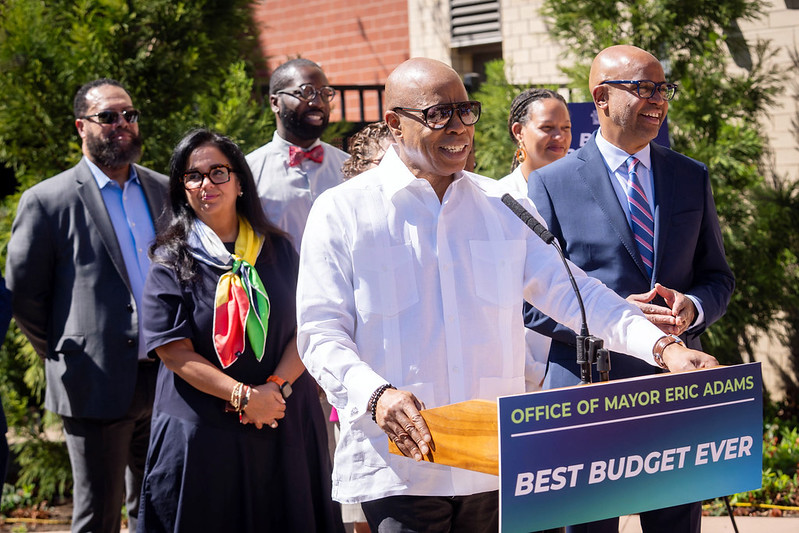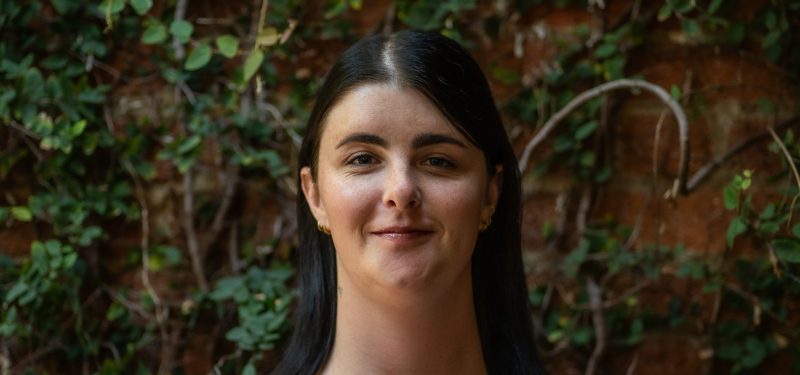People who cherish the tree-lined streets of Queens may breathe a little easier, now that the U.S. House of Representatives has passed a bill to boost funding for the eradication of the Asian Long Horned Beetle (ALB) in the U.S.
The bill, sponsored by Queens/Brooklyn Congressmember Anthony Weiner, increases funding to $35 million, of which approximately $23 million will go to New York City.
The ALB is an insect from China that destroys hardwood trees by planting larvae in the trunk. When they mature, they gnaw their way out of the tree, leaving pencil-sized holes. With the flow of nutrients and water through the trunk, roots and stem disrupted, the tree dies.
Worse yet, until now, when an adult ALB was discovered, the only way to ensure that its eggs could not propagate was to cut down every hardwood tree nearby and burn them
In 1996, the first ALBs in the United States were found in Greenpoint, Brooklyn. The destructive insect has since been found in every borough except the Bronx, and authorities say that 47 percent of the city’s trees are at risk.
In addition to New York City, the beetle has been found in Long Island, New Jersey, Chicago, California and Worchester, Massachusetts.
From 2001 to the present, the United States Department of the Agriculture has spent more than $268 million to fight the infestation.
The State University of New York College of Environmental Science and Forestry (SUNY-Forestry) is working on new pheromone-based traps that will reduce the need to remove infected trees in order to fight infestation.
Weiner helped secure funding for a trap demonstration project for New York City. The agriculture appropriations bill includes $500,000 to fund six new trap demonstration projects around New York State.
“The Asian Longhorned Beetle is the most serious insect threat the city has ever faced – one that left unchecked could kill half of the city’s trees, even as we plant one million more under the MillionTreesNYC initiative,” said New York City Parks Commissioner Adrian Benepe.
“If it is not stopped here it could spread to upstate New York and into New England where it could devastate the Maple sugar industry,” he added.































